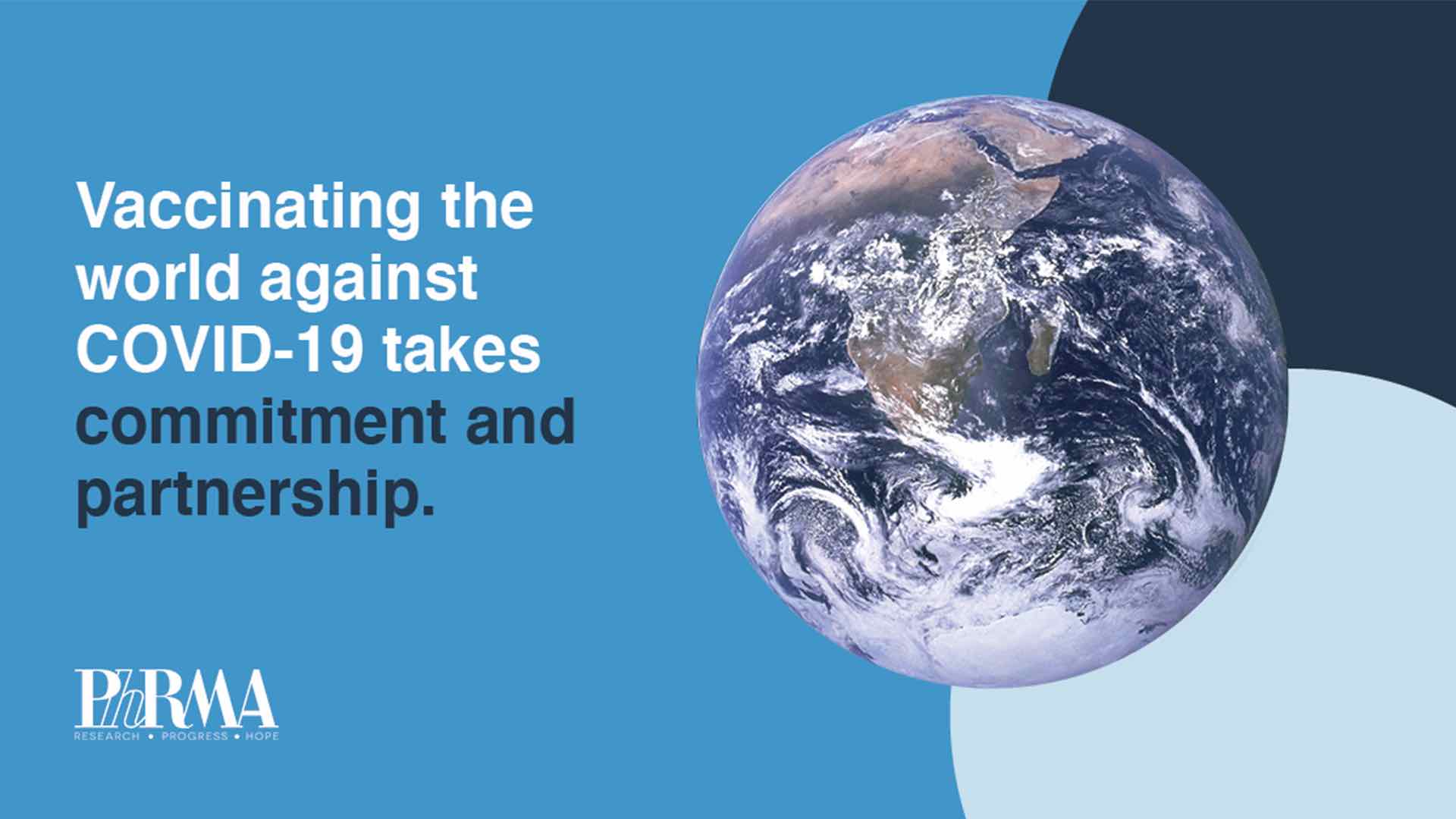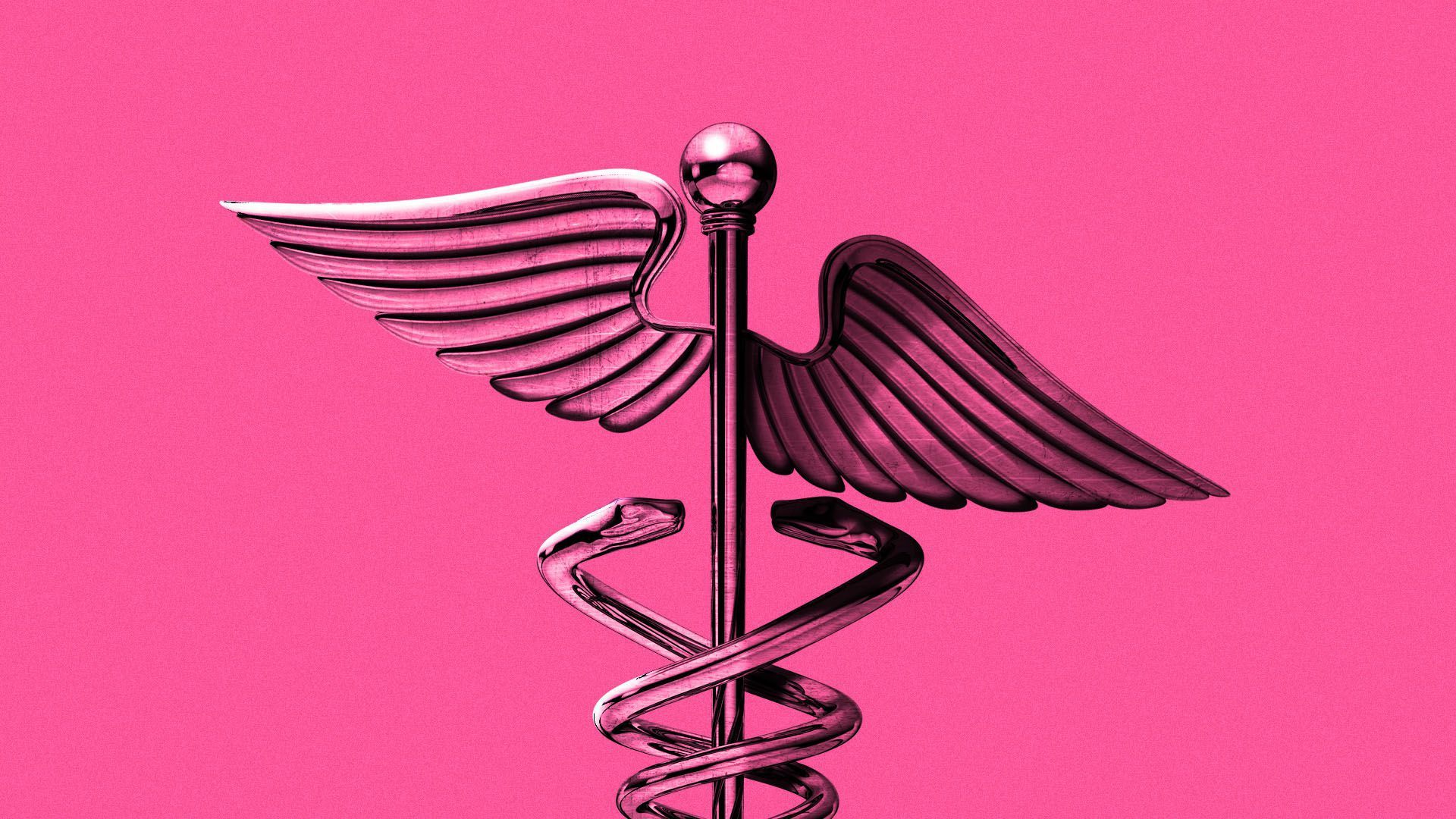| | | | | | | Presented By PhRMA | | | | Vitals | | By Tina Reed ·Jun 04, 2021 | | Good morning and happy Friday! Today's word count is 1,080, or a 4-minute read. The incentives for vaccines keep stacking up. New Mexico is now offering a chance at a $5 million prize, while West Virginia has prizes that include trucks and guns, in addition to cold, hard cash. | | | | | | 1 big thing: FDA faces critical test with Alzheimer's drug decision |  | | | Illustration: Aïda Amer/Axios | | | | The FDA will soon decide the fate of Biogen's experimental Alzheimer's drug. And there is no conclusive evidence the drug effectively treats the crippling neurological disease, Axios' Bob Herman reports. Why it matters: The outcome will show whether the federal agency sides with the overwhelming scientific consensus that the drug isn't proven to work, or with an industry and a patient population desperate for anything to be approved. The background: Two years ago, Biogen halted two clinical trials of its infused drug, aducanumab. Where things stand: Independent physicians, statisticians, drug researchers and others in the field have urged the FDA to reject the drug, warning the study supporting aducanumab is small, flawed and possibly a false positive. - Side effects like brain swelling have also raised concerns.
The other side: Biogen did not make executives available for an interview and would not answer questions on the record. The company's market value will plummet if aducanumab doesn't get approval. The bottom line: "The FDA's credibility would take an enormous hit if this product is approved," Caleb Alexander, a physician and drug researcher at Johns Hopkins who was on the FDA's advisory committee for this drug, told Axios. "It's important they get it right. There's no reason they should follow the science any less here." Go deeper. |     | | | | | | 2. The long drive toward ending HIV/AIDS |  | | | Illustration: Sarah Grillo/Axios | | | | After watching the swift success story of COVID-19 vaccines, researchers and advocates are hopeful renewed funding and vaccine advances might finally lead to an end to the devastating 40-year-old AIDS epidemic, Axios' Eileen Drage O'Reilly writes. The big picture: HIV is more difficult to target than the coronavirus responsible for COVID-19 because the virus can mutate quickly and a vaccine would need to trigger a broadly neutralizing antibody response. The state of play: Death rates from AIDS have dropped dramatically, particularly in the U.S., where new annual HIV infections decreased 73% from 1981 to 2019, the CDC reported Thursday. - However, disparities persist and worries have grown about the COVID-19 pandemic's impact on the AIDS epidemic.
"The biggest challenge is that there are still tens of thousands of cases that occur in the United States every year, that we don't have a true cure or a vaccine, and that because HIV is not in the headlines, there's often complacency that it's not a major problem anymore," Amesh Adalja, senior scholar at Johns Hopkins Center for Health Security, tells Axios. What's next: Now that the urgency of COVID-19 is diminished a bit in the U.S. and the new vaccine platform has been proven, advocates hope more attention and funding will be given to this 40-year epidemic. |     | | | | | | 3. CMS eyes mandatory payment changes |  | | | Illustration: Aïda Amer/Axios | | | | The Biden administration will embrace mandatory payment demonstrations even if they don't save money, Axios' Marisa Fernandez reports. Driving the news: Liz Fowler, the innovation chief of the Centers for Medicare and Medicaid Services, signaled the Biden administration's commitment to value-based care models if they save money or not. - Over the past 10 years, CMMI has tested 54 models, but only five have been shown to save significant amounts of money and only two have been expanded nationally, Fowler said.
What she's saying: "We are exploring more mandatory models. Those come with disadvantages and those who follow what we are doing, you've seen the shift already. It started before I got here, but I support this direction," Fowler said at an event hosted by Health Affairs on Thursday. Go deeper. |     | | | | | | A message from PhRMA | | We are focused on our mission: saving lives | | |  | | | | We're not just talking about vaccines. Manufacturers are working to deliver 11 billion vaccine doses in 2021 alone. We have constructive ways to deliver vaccines, continue to innovate and lower the cost of medicine. That is our focus, day-in and day-out and that work continues. | | | | | | 4. Breast cancer leads Latinas' cancer deaths |  | | | Illustration: Sarah Grillo/Axios | | | | The most common cancer diagnosed among U.S. Latinas is breast cancer, and a recent study published in the journal Cancer Control found it's their leading cause of cancer-related death, Axios' Oriana Gonzalez reports. Why it matters: "While they are less likely to get breast cancer than other ethnic groups, Hispanic women who are diagnosed are 20% more likely than white women to die from the disease," the Baltimore Sun writes. The big picture: Despite evidence Latinas have the second-highest prevalence of the breast cancer genes, BRCA1 and BRCA2, their awareness of hereditary cancer risks and genetic testing is low, Susan Domchek, executive director of the Basser Center for BRCA at Penn Medicine's Abramson Cancer Center, writes. What's happening: The Latino community is also more likely to have difficulties accessing health care and insurance. The bottom line: "Unless we can gain momentum with more discussion and education about breast cancer and more research into specific causes and prevention of breast cancer in Hispanics, the mortality rate could soon surpass that of non-Hispanic whites," said Susan Love, founder of the Dr. Susan Love Foundation for breast cancer research. Share this story. |     | | | | | | 5. World reaches 2 billion doses milestone |  Data: Our World in Data; Chart: Danielle Alberti/Axios The world reached a vaccination milestone this week with 2 billion total doses administered, according to Our World in Data, Axios' Dave Lawler writes. Why it matters: The global rate is speeding up considerably. It took 30 days to go from 500 million doses to 1 billion, 24 days to go from 1 billion to 1.5 billion, and just 16 days to jump from 1.5 billion to 2 billion. Breaking it down: High-income countries (as defined by the World Bank) are generally far ahead of the pack, with a combined 16% of the world's population but 38% of all vaccinations. - But even among the wealthy, progress is uneven. 58% of Brits have had at least one dose, for example, versus just 13% of South Koreans and 9% in Japan.
- Meanwhile, low-income countries are nearly all struggling, with 9% of the world's population but 0.3% of vaccinations. Sub-Saharan Africa is the furthest behind (see chart).
What to watch: Some low-income countries like the Democratic Republic of the Congo — which recently returned 1.3 million doses that were at risk of expiring — have struggled to administer the few doses they have obtained. |     | | | | | | 6. Dog of the week |  | | | Photo: Vivian Vasallo | | | | Meet Pepito, a 14-year-old beagle who was adopted from the Eastern Shore of Maryland and has lived in Washington, D.C., Barcelona and Santa Monica. - His mom Vivian Vasallo, executive director of the Delta Dental Institute, says Pepito is is bilingual, loves long naps, and has enjoyed spending extra time with his grandparents during the pandemic.
Remember, looking at cute animals is good for your health. Do you have a pup you'd like to nominate for our dog of the week? Send pictures! |     | | | | | | A message from PhRMA | | We are focused on our mission: saving lives | | |  | | | | We're not just talking about vaccines. Manufacturers are working to deliver 11 billion vaccine doses in 2021 alone. We have constructive ways to deliver vaccines, continue to innovate and lower the cost of medicine. That is our focus, day-in and day-out and that work continues. | | | | Thanks for reading Axios Vitals! Not a subscriber yet? Let's fix that. |  | | The tool and templates you need for more engaging team updates. | | | | | | Axios thanks our partners for supporting our newsletters. If you're interested in advertising, learn more here.
Sponsorship has no influence on editorial content. Axios, 3100 Clarendon Blvd, Suite 1300, Arlington VA 22201 | | | You received this email because you signed up for newsletters from Axios.
Change your preferences or unsubscribe here. | | | Was this email forwarded to you?
Sign up now to get Axios in your inbox. | | | | Follow Axios on social media:    | | | | | |











No comments:
Post a Comment